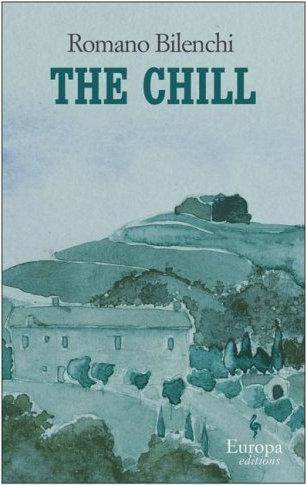"The Chill" by Romano Bilenchi
"The Chill" by Romano Bilenchi, Thursday October 14 th, 6:00 pm The Chill is a coming-of-age story, which recounts the life of a sixteen-year-old boy, set in the Tuscany of the mid-1920s. With the pangs of adolescence, the important issues of life come together: family, death, friendship, love and betrayal. That formative age, however, in its apparent triviality, keeps a secret dimension of non-sense, loss and impotence. Malice, ignorance, and thoughts of vengeance affect the life of a sensitive teen-ager. An uncontrollable threat of destruction harasses the mind of an adolescent and puts in jeopardy the whole society around. The tale The Chill, written in 1982, was published in 1984 with two other short stories under the collective title The Hopeless Years. The European Book Club session at the Italian Institute of Culture will be led by Andrea Malaguti. Andrea Malaguti is an independent scholar currently living in New York. He has taught at many American universities, including Harvard, Bennington College, and Columbia, and is the author of La svolta di Enea: retorica ed esistenza di Giorgio Caproni, a monographic study on one of the most important Italian poets of the twentieth century. Romano Bilenchi (1909 – 1989), one of the most intriguing narrators of the twentieth century Italian literature, spent most of his life in Florence. A very sensitive and independent character, he lived diverse, even conflicting experiences, passing through the most crucial historical turns of the political and intellectual development of Italy in the last century. In his early years, well into the 30s, he shared the anti-bourgeois and unconventional ideas of the so-called “leftist Fascists”, open to European and American influences. Later, he became anti-Fascist and during World War II joined the partisans who fought against the Nazis in occupied Italy. After the war, he was very active in the Italian Communist Party until 1956, when he openly dared criticize the official Stalinist line and the Soviet Union’s politics in Eastern Europe. His long literary activity always went with his intellectual and political engagement. Ordinary lives of middle-class people living in the lethargic provincial towns of Tuscany is the world he portrays, with a narrative style that is seemingly simply and naturalistic. Bilenchi recollects time and again experiences of the childhood and adolescence, scenes of family life and daily routine. RSPV 212-879-4242 etx. 360
